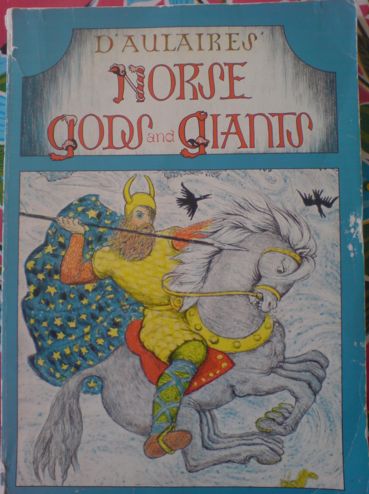
When the kid was born, one of my wife's best friends gave her a vintage copy of Norse Gods and Giants [1967], by Ingri and Edgar d'Aulaire. Apparently, they all used to read it together in elementary school. It's a classic, but a little advanced, perhaps, for a newborn.
So it was only in the last few months, as the kid was turning five, that we tested it out on her. By Odin's beard! She. Loved it, from the swirling primordial abyss of Ginnungagap to picking up the pieces after Ragnarok.
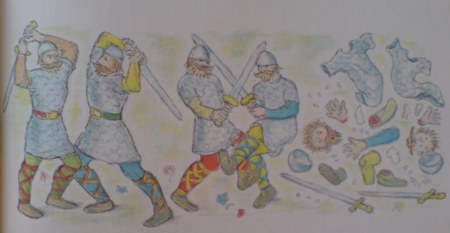
I braced myself to explain all kind of things, from the grossness of Odin plucking out his eye to theological questions about why one set of god stories is made up, while another, like, say, the Bible, is "real." But the label of "story" is a powerful thing, and the kid was remarkably unfazed.
Once we settled into the chapter-a-night routine of Norse Gods and Giants, I stopped worrying too much about reconciling the morals and behaviors of these characters with our own modern worldview.
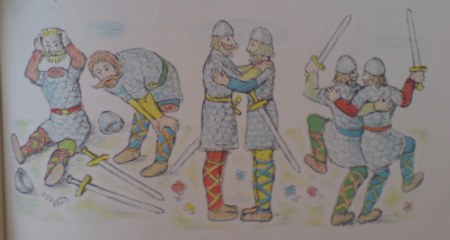
And except for revenge killings, which disturbed her and prompted some deep discussion, the day-to-day craziness of ancient/mythological life--warriors in Valhalla chopping themselves to pieces every morning; Odin seducing Jotun maidens to steal their magic mead; Loki turning into a mare, getting impregnated by a giant stallion, and giving birth to Odin's 8-legged horse Sleipnir--were taken with a grain of storytime salt.
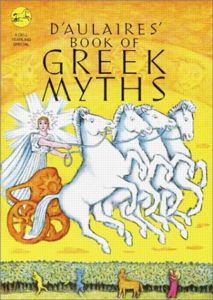 In fact, it was only this week, when we got the d'Aulaires' earlier, better known Book of Greek Myths [1962] that I realized how depraved those Norse gods were. According to d'Aulaire, every woman, mortal or not, who Zeus knocked up was his wife. And that cute Ganymede Zeus kidnapped to be his boytoy? Just a cupbearer. And there's not even a mention of Leda, who Zeus either seduced or raped as a swan.
In fact, it was only this week, when we got the d'Aulaires' earlier, better known Book of Greek Myths [1962] that I realized how depraved those Norse gods were. According to d'Aulaire, every woman, mortal or not, who Zeus knocked up was his wife. And that cute Ganymede Zeus kidnapped to be his boytoy? Just a cupbearer. And there's not even a mention of Leda, who Zeus either seduced or raped as a swan.
Not that I'm disappointed that in a kids' book, the d'Aulaires glossed over a lot of Olympian shenanigans--Apollo doesn't even kill Niobe's sons, they are "torn from life" by his arrows--just that the contrast in tone with the Norse book is so stark.
I don't know if it was differing levels of primness in their chosen source material, the Norwegian Inri's greater comfort with the Norse sagas, or those damn hippies with their free love who took over the world between the two books' publication. But compared to those Viking savages, Zeus and his buddies come off sounding like saints.
The NY Review of Books' 2005 reissue, now titled D'Aulaires' Book of Norse Myths, is apparently spectacular [amazon]
Or start with the family-friendlier? D'Aulaire's Book of Greek Myths [amazon]

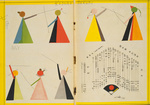

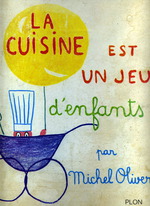
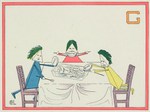
Cool. When she's older, she'll be a hit with the Dungeons & Dragons crowd!
Eh, I just use these as a reason none of them are probably real.
I grew up on the book of Greek Myths (coming from a huge Greek Family FOTB). And, the pictures are seared in my brain (I was obsessed with the "family tree" page).